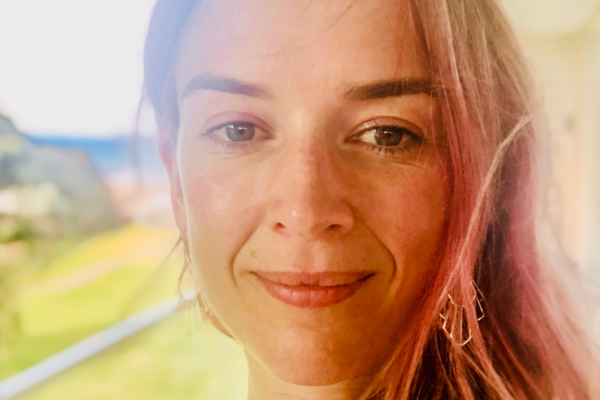Genevieve’s Story

Genevieve
| For anyone out there right now experiencing symptoms and wondering what to do, or with a recent diagnosis and wondering what to expect – here’s my story for you. I hope it helps.
Symptoms and Diagnosis: A few months passed before I finally went and saw my GP. Although my symptoms were mild my iron levels were low, which warranted a referral to a gastroenterologist. Another two months passed. When I finally saw them I was told “you’re young, it’s probably nothing, just monitor your symptoms and come back if anything changes.” I feel very lucky they changed their tune in the days that followed and referred me for a colonoscopy. My outcomes could have been a lot worse if I had waited much longer. Treatment: Thankfully, all went well, much to my relief. It was amazing to see how quickly my body recovered post-surgery. I wasn’t aware of the option at the time, but I would definitely recommend taking advantage of the free physio appointments provided by Bowel Cancer NZ. Next, I was confirmed as stage 3B, so chemotherapy was on the cards. This was a huge blow – it meant my chances of recurrence were actually much higher than the 10% I had hoped for, now more like 30%. Each 3-weekly cycle started with Oxaliplatin administered via a port in my chest, followed by two weeks of Capecitabine tablets morning and night. I can’t say I loved having the port in (it felt weird, alien), but I appreciate that it saved me a lot of hassle and discomfort. Chemo was the hardest part. Feeling like I’d lost control, I worried about my chances of recurrence and obsessed over the unknown: reading every article I could find about cancer cells, treatment outcomes, side effects, looking for anything positive I could do to influence things. I understand a lot better now how vulnerable people can be at this point, how susceptible you might be to trying anything that could help, but in reality might cause harm. I had moments of blaming myself (had I made poor lifestyle choices?) sadness (goodbye to the old carefree me) and overwhelm at the outpouring of care and support – sometimes I just wanted everyone to treat me normally. I mostly stayed at home to avoid Covid impacting my treatment, which could be lonely at times. Luckily, I was able to work from home, which kept me interacting with people, and gave me something else to focus on. Friends would pop by for a walk and/or a catch up, which was great too. Side-effects from treatment weren’t fun – but were manageable – pro tip: always take the anti-nausea meds on time! The first week of each cycle would always find me nauseous, weak and wobbly, plus so cold sensitive I couldn’t touch things from the fridge or drink room temperature water. I had a lot of soup and hot tea to keep my fluids up, although it’s worth noting I’m not sure I can stand either of them now. Exercise was a huge help here again both from a physical and mental perspective. I was surprised, but really grateful I was still able to go running and keep up with my pilates. (A huge thanks to my running buddy for sticking with me throughout treatment, even as they gradually became much slower and shorter!) Recovery: Life is slowly going back to normal, although I’ve definitely had a perspective shift in how I view my priorities and the way I think about the future. I’m currently keeping all my (numb!) fingers and toes crossed for a good outcome when I have my CT scan later this year. Wishing you and your loved ones well wherever you are in your journey too. |


